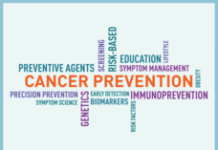March is National Nutrition Month! To honor National Nutrition Month, our resourceful dietician friends have created a number of blogs that will post during the month of March. These blogs will cover popular nutrition topics and myths. Check back often to see what new topics are being blogged about!

To Fast or Not to Fast-That is the Question
Intermittent fasting is an area in nutrition that has increased in popularity in the news and social media over the past several years. It proposes many health claims and benefits, including in the cancer field, that makes it challenging to know truth vs fiction. Some of the more holistic claims is that it allows the body to focus its energy on cleansing and healing. There is also a spirituality aspect of fasting, where some religions fast during certain times of day or certain times of year out of respect for traditional practices and beliefs.
There are different methods of calorie restriction and fasting:
-Calorie restriction: 20-40% reduction in calorie intake over a long period of time (1200 calories for women, and 1400 calories for men per day)
-Intermittent calorie restriction: 50-70% reduction in calorie intake for short periods of time (600-1000 calories per day)
-Fasting: Complete avoidance of calorie intake for anywhere from one day to several weeks
-Intermittent fasting: Complete avoidance of calorie intake for 16-18 hours daily or alternating a fasting day with normal energy intake day
The focus of this article will be on the intermittent fasting method. Research with intermittent fasting and cancer began almost a century ago and remains ongoing. Studies are invested in looking at how intermittent fasting impacts responses to cancer the disease, and its role with cancer treatments. To better understand these findings, it is helpful to first look at what happens in the body when someone fasts.
What Happens During Fasting?
During normal metabolism, when an individual eats, certain pathways are activated that result in our body being able to either use the energy we just consumed, or store it for later use in the form of muscle or fat. When someone fasts, it alters the normal pathways of the body’s metabolism. Because there is less readily available incoming fuel (food) for cells to use for energy, the way we use carbohydrates, protein, and fats has to change. Our body resorts to using our stored energy. This is one of the main differences between calorie restriction and fasting, as calorie restriction can take weeks to months to be effective at causing this metabolic shift. These changes in hormones and other enzymes that occur during fasting help to protect our healthy cells. This is known as differential stress resistance.
What Does The Research Say?
Studies show that cancer cells may not possess differential stress resistance, the protective signaling that occurs within healthy cells in times of fasting. Because of this, it may leave the cancer cell more vulnerable to effects of chemotherapy and the body’s own immune system.
To look further into this, researchers performed a ten patient case study. The participants fasted from a range of 48-140 hours prior to chemotherapy, and 5-56 hours following chemotherapy. None of the participants experienced significant side effects from the fasting other than hunger and lightheadedness. Six of the patients who underwent chemotherapy tried both fasting and not fasting. When they did fast, they reported reduction in fatigue, weakness and gastrointestinal side effects while fasting. The decreased gastrointestinal side effects were likely due to the absence of nutrients in the GI system. However, due to its small sample size, further studies were recommended. There have also been several case studies with patients diagnosed with glioblastoma that demonstrated clinical results. Additional randomized clinical trials are needed to provide more insight on fasting compliance, potential side effects, and its impact on cancer biomarkers. Longitudinal studies are also needed to investigate if there are any difference in responses from cancer treatments, and risk of recurrence, from those who fasted compared to those who did not.
Potential Side Effects of Fasting
While there is some interesting research with fasting and cancer, it is important to remember that there may be side effects. If used for an extensive period of time, fasting can result in malnutrition due to the lack of nutrients. While the body does have stored nutrition in fat and muscles, these would only be available for finite time if no other fuels were being consumed. There would also be concern for vitamin and mineral deficiencies for those nutrients that the body cannot store, such as water-soluble vitamins- Vitamin C and B Vitamins.
Short term side effects can also include headaches, dizziness, fatigue, and low blood pressure. This, coupled with other potential side effects of chemotherapy, could make tolerating treatments more challenging
Food intake may also improve bioavailability of certain chemotherapy agents. If fasting, it raises question about determining an effective dosing during treatment.
There is a form of fasting, known as dry fasting, that limits both fluids and food intake. This can be especially detrimental, and lead to dehydration and death if continued for an extended period of time.
Overall Recommendations
Fasting is a practice that has historically been viewed as part of a spiritual or religious belief, but has gained recent popularity for its potential health benefits, including in the cancer field. Animal and cell based studies have demonstrated the potential for fasting to make cancer cells more susceptible to chemotherapy, while protecting the health of a normal cell. There have been case studies involving patients that demonstrated few side effects of fasting during treatment; however, more human based studies are needed to confirm these findings before official recommendations can be made regarding the safety and efficacy of fasting for patients undergoing cancer treatments.
If fasting is something you would like to pursue, it is important to inform your medical team of your decision. It is also recommended to be under strict supervision of physician and dietetic professional to ensure hydration and nutritional requirements are being met under treatment.
References
- “Alternating Metabolism – Food for Thought” Lenora Renda RDN, The University of Arizona Cancer Center.
- Cabo and Mattson. Effects of Intermittent Fasting on Health, Aging, and Disease. The New England Journal of Medicine, 2019;381:2541-51.
- Oncology Nutrition in Clinical Practice, Maureen Leser. 2013. Third Edition.
- Rassouli. Fasting in Cancer Patients: A Challenge for Caregivers. Basic & Clinical Cancer Research, 2018;10(1)1-2.
- University of California San Francisco Osher Center for Integrative Medicine: Cancer and Fasting/Calorie Restriction https://osher.ucsf.edu/patient-care/integrative-medicine-resources/cancer-and-nutrition/faq/cancer-and-fasting-calorie-restriction
Sarah Beaty MS RD CSO LDN completed her B.S in Nutrition from Mansfield University of Pennsylvania and received her M.S in Nutrition from the University of North Carolina at Greensboro. She is currently an Oncology Dietitian and Patient Navigator for head and neck cancer patients at the Ann B. Barshinger Cancer Institute in Lancaster, PA. This role allows her to educate and support patients nutritionally at any part of their cancer journey, while also acting as a guide for Head and Neck Cancer patients through treatment







